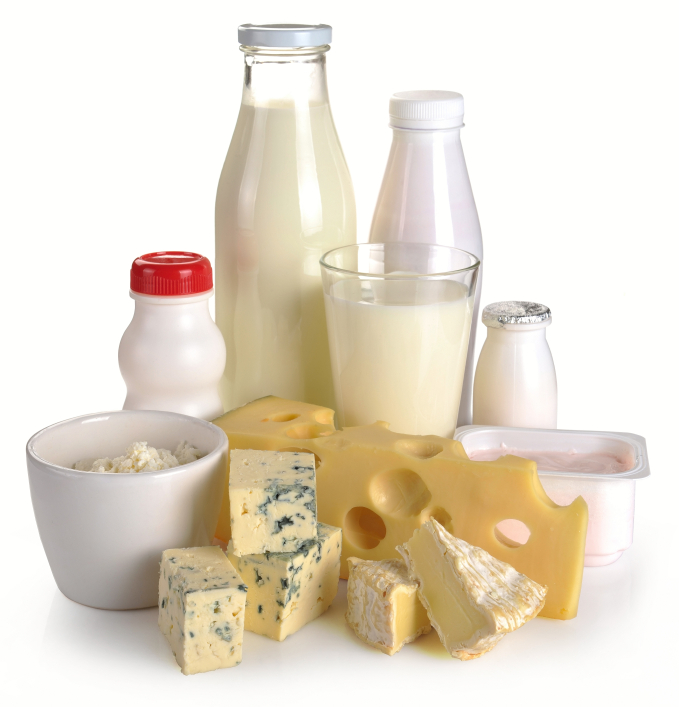In a perfect world all dairy products would originate from cows totally pastured on organic farms and not injected with artificial hormones. Unfortunately, most of the dairy products currently available in the United States originate from industrial factory farms where cows are closely confined, fed pesticide-doused corn and soy products from troughs, and injected with rbGH or from conventional dairy operations where cows may have more freedom to roam but are still fed some corn and soy products and may still be injected with rbGH.
What is rbGH?
rbGH (recombinant bovine growth hormone), also known as rbST (recombinant bovine somatopropin) is a genetically engineered artificial hormone injected into dairy cows to increase milk production.
rbGH is banned in Europe and in Canada but was approved for use in the United States by the Food and Drug Administration (FDA) in 1993.
Cows injected with rbGH often develop significant health problems. The Center for Food Safety notes a 50% increase in the risk for lameness due to leg and hoof problems and a 25% increase in udder infections, resulting in the use of more antibiotics. Other health problems associated with rbGH use include infertility, cystic ovaries, fetal loss, and birth defects.
The FDA does not require a label disclosure of rbGH. Most dairy companies that do not use rbGH have chosen to voluntarily label their products as being rbGH-free. Fortunately, more and more dairy companies are choosing to reject the use of rbGH.
The Organic Advantage
Buffaloberries™ uses full-fat organic milk, half and half, cream, butter, yogurt and cheese in all of our recipes—all rbGH-free.
We believe that organic dairy products from pastured cows is the gold standard but organic dairy products are more expensive and are not always accessible. Non-organic dairy products from cows not treated with rbGH can be a healthy, affordable alternative to dairy products produced in industrial and conventional dairy operations.
Organic certification standards require that the animals have access to pasture, are not overcrowded, are fed organic feed, and are not given any growth promoters or hormones, mammalian byproducts, or plastic roughage pellets. Antibiotics and other medications can only be used to save the cow's life. Cows in organic operations are typically much healthier and outlive cows in industrial and conventional operations by several years.
Organic dairy products contain higher amounts of beneficial Omega3 fats and grassfed produce much higher levels of CLA, a fatty acid whose presence is associated with a reduced risk of heart attacks.
Recent studies have found that organic dairy cows emit 60 to 80% less methane than cows in industrial or conventional operations. That's very important in light of a 2006 United Nations report noting that greenhouse gas emissions from cows exceeded the combined tailpipe emissions of greenhouse gases from all cars, trucks, planes, trains, and other motorized vehicles combined.
Lastly, organic dairy operations protect precious groundwater by using feed from fields that are not sprayed with atrazine and other harmful pesticides.




